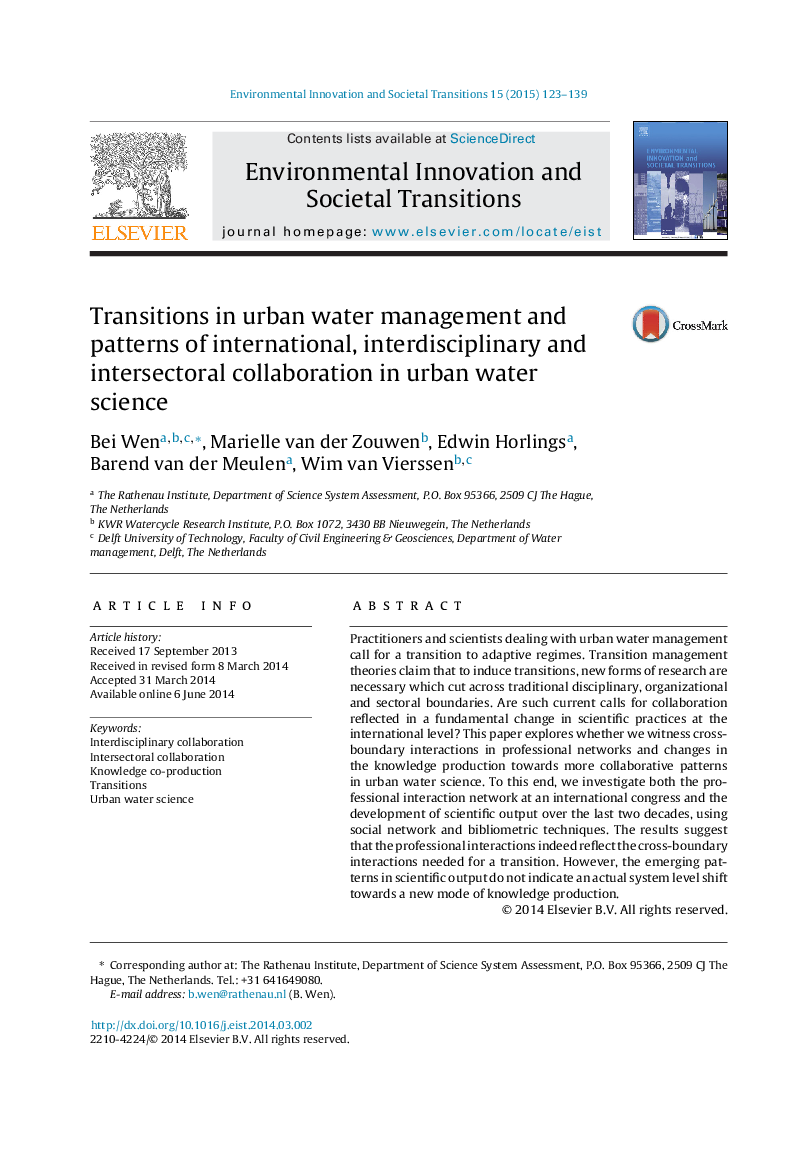| Article ID | Journal | Published Year | Pages | File Type |
|---|---|---|---|---|
| 108193 | Environmental Innovation and Societal Transitions | 2015 | 17 Pages |
•To what extent do we witness cross-boundary collaborations in professional networks and scientific output in UWS.•Social network and bibliometric techniques are used to investigate the professional networks and scientific output in UWS.•The result shows a professional field with interdependent relationships between science, industry, government and society.•The longitudinal analysis suggests no empirical evidence for the rise of new modes of knowledge production in UWS.•This implies that we need to improve our understanding of the inner workings of the professional arena.
Practitioners and scientists dealing with urban water management call for a transition to adaptive regimes. Transition management theories claim that to induce transitions, new forms of research are necessary which cut across traditional disciplinary, organizational and sectoral boundaries. Are such current calls for collaboration reflected in a fundamental change in scientific practices at the international level? This paper explores whether we witness cross-boundary interactions in professional networks and changes in the knowledge production towards more collaborative patterns in urban water science. To this end, we investigate both the professional interaction network at an international congress and the development of scientific output over the last two decades, using social network and bibliometric techniques. The results suggest that the professional interactions indeed reflect the cross-boundary interactions needed for a transition. However, the emerging patterns in scientific output do not indicate an actual system level shift towards a new mode of knowledge production.
